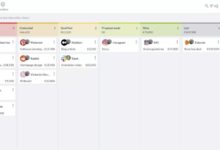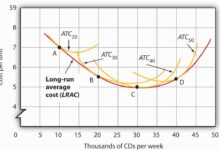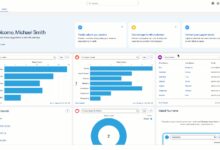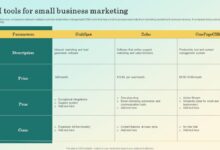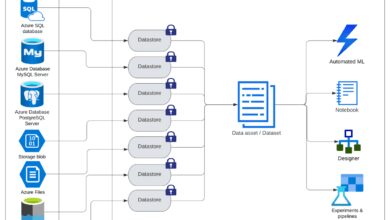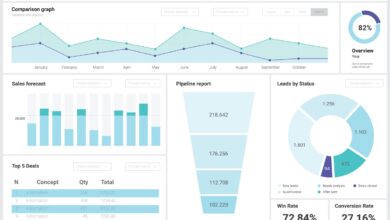Salesforce CRM Pricing: 7 Shocking Truths You Must Know in 2024
Thinking about Salesforce CRM but overwhelmed by the pricing? You’re not alone. With multiple editions, hidden costs, and complex add-ons, understanding Salesforce CRM Pricing can feel like decoding a secret language. Let’s break it down—clearly, honestly, and completely.
Salesforce CRM Pricing: The Complete Breakdown for 2024
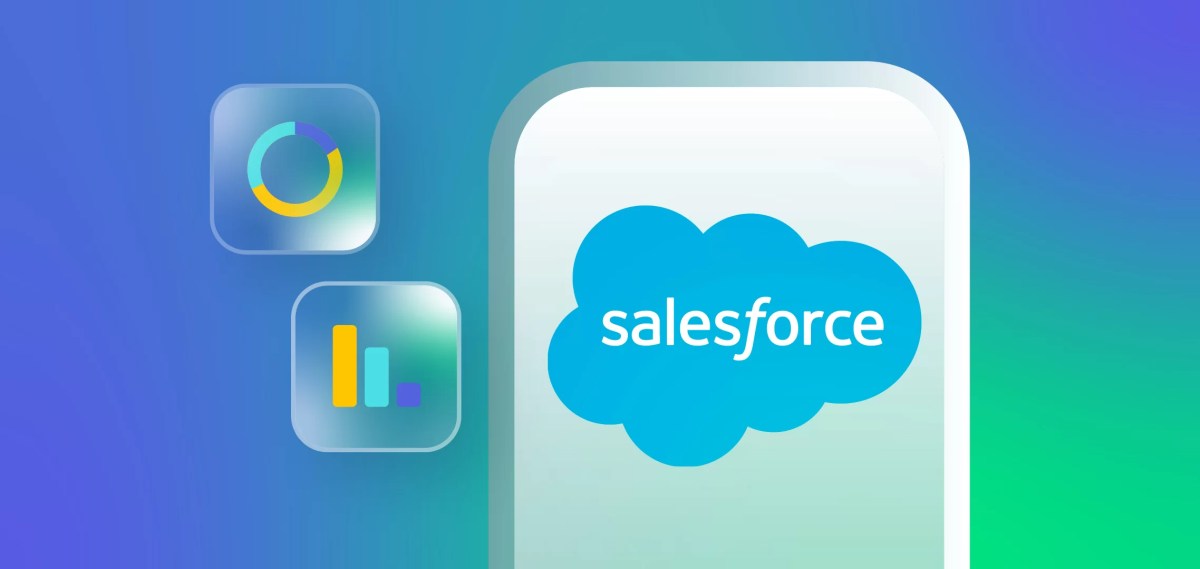
Salesforce CRM Pricing is one of the most discussed topics in the business software world. Known for its powerful automation, scalability, and integration capabilities, Salesforce dominates the CRM market. But how much does it really cost? The answer isn’t simple—pricing varies based on edition, number of users, features, and add-ons.
According to Salesforce’s official website, the platform offers several editions tailored to different business sizes and needs. However, the listed prices are often just the starting point. Implementation, training, customization, and third-party apps can significantly increase the total cost of ownership (TCO).
Understanding the Core Pricing Model
Salesforce operates on a subscription-based model, charging per user per month. You typically pay annually, though monthly options exist. The base price depends on the edition you choose, but additional features like advanced analytics, AI tools (Einstein), and industry-specific solutions come at extra cost.
- Subscription is per user, per month, billed annually.
- Minimum of 1 user required; no free tier for full CRM access.
- Discounts may apply for non-profits, education, or long-term contracts.
Hidden Costs Beyond the Sticker Price
Many businesses underestimate the true cost of Salesforce CRM because they focus only on the published rates. In reality, implementation, customization, training, and ongoing support can double or even triple your initial budget.
- Implementation: $5,000–$100,000+ depending on complexity.
- Custom development: $100–$250/hour for certified developers.
- Third-party apps from AppExchange: $10–$500+/user/month.
“The sticker price of Salesforce is just the tip of the iceberg. The real investment comes in configuration, integration, and change management.” — CRM Industry Analyst, Gartner
Salesforce CRM Pricing by Edition: Which One Fits Your Business?
Choosing the right edition is crucial to managing Salesforce CRM Pricing effectively. Each edition offers a different set of features, scalability, and support levels. Let’s explore the main options available in 2024.
Salesforce Essentials: For Small Businesses Starting Out
Salesforce Essentials is the most affordable entry point, designed for small teams with up to 10 users. It includes basic CRM features like contact management, lead tracking, email integration, and simple automation.
- Price: $25/user/month (billed annually).
- Ideal for: Startups, small sales teams, solopreneurs.
- Limits: No advanced reporting, limited customization.
While Essentials is budget-friendly, it lacks the depth needed for growing businesses. Upgrading later can involve data migration and retraining.
Salesforce Professional: The Most Popular Mid-Tier Option
Salesforce Professional is the go-to choice for small to mid-sized businesses that need more functionality than Essentials but don’t require enterprise-level tools.
- Price: $75/user/month.
- Features: Workflow automation, email integration, custom reports, AppExchange access.
- Best for: Sales teams, service departments, marketing automation.
Professional edition supports moderate customization and integrates well with common business tools. However, it doesn’t include Salesforce’s AI (Einstein) or advanced forecasting tools.
Salesforce Enterprise: For Growing Companies Needing Power
Salesforce Enterprise is where the platform truly shines. It’s built for organizations that need deep customization, API access, and advanced security.
- Price: $150/user/month.
- Features: Full API access, workflow automation, sandbox environments, custom apps.
- Ideal for: Mid-sized to large companies with IT teams.
This edition allows businesses to build custom solutions on the Salesforce platform. However, it requires technical expertise or hiring consultants, adding to the overall Salesforce CRM Pricing.
Salesforce Unlimited: The Ultimate CRM Powerhouse
Salesforce Unlimited is the premium tier, offering everything in Enterprise plus 24/7 support, additional storage, and priority access to new features.
- Price: $300/user/month.
- Features: Unlimited sandboxes, enhanced support, premium consulting hours.
- Best for: Large enterprises with complex CRM needs.
Unlimited is designed for companies that can’t afford downtime and need maximum flexibility. But for most businesses, it’s overkill—and overpriced.
Salesforce CRM Pricing for Service Cloud and Sales Cloud
Salesforce CRM Pricing isn’t just about editions—it also depends on the cloud you choose. The two most popular are Sales Cloud and Service Cloud, each with its own pricing structure and features.
Sales Cloud Pricing: Driving Sales Efficiency
Sales Cloud is the core sales automation tool within Salesforce. It helps manage leads, opportunities, accounts, and forecasting.
- Essentials: $25/user/month – basic lead and contact management.
- Professional: $75/user/month – includes workflow rules and email integration.
- Enterprise: $150/user/month – full customization and API access.
- Unlimited: $300/user/month – premium support and sandboxes.
Additional features like Einstein Lead Scoring or Sales Analytics are sold separately, often adding $25–$50/user/month.
Service Cloud Pricing: Elevating Customer Support
Service Cloud is tailored for customer service teams, offering case management, knowledge bases, live chat, and omnichannel support.
- Essentials: $25/user/month – basic case tracking.
- Professional: $75/user/month – includes web-to-case and SLA management.
- Enterprise: $150/user/month – API access and custom console.
- Unlimited: $300/user/month – 24/7 support and sandbox access.
Service Cloud also offers add-ons like Field Service Lightning ($150/user/month) and Digital Engagement ($75/user/month), which can quickly inflate your Salesforce CRM Pricing.
Salesforce CRM Pricing Add-Ons and Extras You Should Know
The base price of Salesforce is rarely the final cost. Add-ons and premium features can significantly impact your budget. Understanding these extras is essential for accurate forecasting.
Einstein AI: Smarter CRM with a Premium Price
Salesforce Einstein brings AI-powered insights to your CRM, including lead scoring, forecasting, and email recommendations.
- Einstein Lead Scoring: $50/user/month.
- Einstein Opportunity Scoring: $50/user/month.
- Einstein Analytics: $75–$150/user/month.
While Einstein can boost productivity, it’s not included in most editions and adds a substantial cost, especially for large teams.
Marketing Cloud: For Advanced Campaign Management
Marketing Cloud is a separate product suite focused on email, social, and advertising campaigns. It’s not part of standard Salesforce CRM Pricing and requires a custom quote.
- Starting price: ~$1,500/month for basic email marketing.
- Can exceed $50,000/month for enterprise plans.
- Integration with Sales/Service Cloud adds complexity.
Many businesses assume Marketing Cloud is included in CRM pricing—this is a costly misconception.
AppExchange Apps: The Hidden Cost Multiplier
The Salesforce AppExchange hosts thousands of third-party apps that extend functionality. While some are free, many are subscription-based.
- Popular apps like DocuSign, Mailchimp, or PandaDoc: $10–$50/user/month.
- Industry-specific tools (e.g., healthcare, finance): $100+/user/month.
- Integration and maintenance add technical overhead.
It’s common for companies to spend as much on AppExchange apps as they do on the core CRM license.
Salesforce CRM Pricing for Nonprofits and Education
Salesforce offers special pricing for nonprofit organizations and educational institutions through its Power of Us Program.
Nonprofit Pricing: Up to 90% Discount
Qualified nonprofits can get Salesforce CRM at a fraction of the cost.
- Sales Cloud: $26/user/month (normally $75+).
- Service Cloud: $26/user/month.
- Marketing Cloud: 50% discount available.
To qualify, organizations must be registered 501(c)(3) in the U.S. or equivalent globally. Approval requires documentation and adherence to Salesforce’s nonprofit policies.
Education Pricing: Empowering Schools and Universities
Educational institutions can access Salesforce at reduced rates for student recruitment, alumni engagement, and administrative efficiency.
- Discounts vary by institution size and use case.
- Free training and certifications available through Trailhead.
- Special editions like Education Data Architecture (EDA) are included.
Salesforce CRM Pricing for education is highly customizable, often requiring direct consultation with Salesforce reps.
Salesforce CRM Pricing vs Competitors: Is It Worth It?
How does Salesforce CRM Pricing stack up against rivals like HubSpot, Zoho, and Microsoft Dynamics? Let’s compare.
HubSpot CRM: Free Tier, But Limited
HubSpot offers a robust free CRM with paid tiers for advanced features.
- Free CRM: $0 – includes contact, deal, and task management.
- Sales Hub Professional: $45/user/month.
- Sales Hub Enterprise: $1,200/month (not per user).
HubSpot is more affordable for small teams but lacks the scalability and customization of Salesforce.
Zoho CRM: Budget-Friendly Alternative
Zoho CRM is known for competitive pricing and solid features.
- Standard: $14/user/month.
- Professional: $23/user/month.
- Enterprise: $40/user/month.
Zoho is significantly cheaper than Salesforce, but integration depth and ecosystem support are weaker.
Microsoft Dynamics 365: Enterprise Competitor
Dynamics 365 offers similar enterprise capabilities with different pricing models.
- Sales Professional: $65/user/month.
- Customer Service: $95/user/month.
- Enterprise plans: Custom quotes, often comparable to Salesforce.
Dynamics integrates seamlessly with Microsoft 365, making it attractive for existing Microsoft users. However, Salesforce still leads in AI, AppExchange, and global support.
How to Reduce Salesforce CRM Pricing Without Losing Value
You don’t have to pay full price for Salesforce. With smart strategies, you can reduce costs while maintaining functionality.
Negotiate with Salesforce or a Partner
Salesforce rarely gives discounts upfront, but they’re often negotiable—especially for annual contracts or larger teams.
- Ask for multi-year discounts (up to 15–20%).
- Consider buying through a Salesforce partner for bundled deals.
- Nonprofits and education should apply for the Power of Us program.
Start Small and Scale Gradually
Begin with a lower edition and upgrade as your needs grow. This spreads out costs and reduces initial risk.
- Start with Essentials or Professional for core teams.
- Add users and features only when necessary.
- Use sandbox environments to test changes before rollout.
Optimize AppExchange Usage
Regularly audit your AppExchange apps. Remove unused or redundant tools to cut costs.
- Consolidate apps with overlapping functions.
- Negotiate volume discounts with third-party vendors.
- Use native Salesforce features before buying add-ons.
Salesforce CRM Pricing: Real-World Examples and Case Studies
Let’s look at actual companies and how they manage Salesforce CRM Pricing.
Startup Example: 10 Users on Professional Edition
A tech startup with 10 sales reps chooses Salesforce Professional at $75/user/month.
- Annual license cost: $9,000.
- Implementation: $15,000 (consultant fees).
- AppExchange apps: $3,000/year (DocuSign, Mailchimp).
- Total Year 1 cost: ~$27,000.
They save by avoiding Enterprise features they don’t need yet.
Mid-Sized Company: 100 Users on Enterprise Edition
A manufacturing firm with 100 employees uses Salesforce Enterprise for sales and service.
- License cost: $180,000/year.
- Custom development: $50,000.
- Einstein AI: $60,000/year.
- Total Year 1 cost: ~$300,000.
They negotiate a 10% discount and spread payments over 18 months.
Nonprofit: 50 Users with Discounted Pricing
A charity with 50 staff uses Salesforce Sales and Service Cloud at nonprofit rates.
- License cost: $13,000/year (vs. $45,000 at full price).
- Implementation: $20,000 (grants cover half).
- Total Year 1 cost: ~$23,000.
The 90% discount makes Salesforce accessible and transformative for their operations.
Future Trends in Salesforce CRM Pricing (2025 and Beyond)
Salesforce CRM Pricing is evolving. Here’s what to expect in the coming years.
Increased Focus on AI and Automation
Salesforce is investing heavily in Einstein AI. Expect more AI features—and higher prices.
- AI tools may become bundled in higher editions.
- Pay-per-use AI models could emerge.
- Competitors will push Salesforce to justify premium pricing.
Pricing Model Shifts: Usage-Based or Hybrid Models?
While Salesforce remains per-user, there’s growing demand for usage-based pricing.
- Hybrid models (user + usage) may appear for specific clouds.
- Micro-billing for API calls or AI interactions could be tested.
- Enterprise customers may get more flexible options.
More Transparency and Simpler Tiers?
Customer feedback has pushed Salesforce to simplify its offerings.
- Fewer overlapping editions in the future.
- Clearer pricing pages with total cost estimates.
- More self-service tools to reduce implementation costs.
While full transparency is unlikely, Salesforce may adopt more user-friendly pricing structures.
What is the cheapest Salesforce CRM plan?
The cheapest plan is Salesforce Essentials at $25 per user per month. It’s designed for small businesses with up to 10 users and includes basic CRM features like contact management, lead tracking, and email integration. However, it lacks advanced automation and customization options.
Is there a free version of Salesforce CRM?
Salesforce does not offer a free version of its full CRM platform. However, it provides a free trial (usually 30 days) and a free edition called Salesforce Nonprofit Cloud for qualified organizations. Additionally, Trailhead, Salesforce’s learning platform, is free and includes a free Developer Edition for practice.
How much does Salesforce CRM cost for 10 users?
For 10 users, the annual cost varies by edition: Essentials ($3,000/year), Professional ($9,000/year), Enterprise ($18,000/year), and Unlimited ($36,000/year). Additional costs for implementation, apps, and training can add $5,000–$20,000 in the first year.
Why is Salesforce so expensive?
Salesforce is expensive due to its scalability, deep customization, AI capabilities, vast AppExchange ecosystem, and enterprise-grade support. While the base price is high, the real cost comes from implementation, consulting, and add-ons. It’s built for large organizations that need powerful, flexible CRM solutions.
Can I negotiate Salesforce CRM pricing?
Yes, Salesforce pricing is often negotiable, especially for annual contracts, multi-year commitments, or large user counts. Nonprofits and educational institutions can apply for significant discounts. Working with a Salesforce partner may also yield better deals than going directly to Salesforce.
Understanding Salesforce CRM Pricing is essential for making a smart investment. From entry-level Essentials to enterprise-grade Unlimited, each edition serves different needs. While the sticker price is just the beginning, smart planning, negotiation, and gradual scaling can make Salesforce affordable and highly effective. Whether you’re a startup, nonprofit, or global corporation, the key is aligning your CRM choice with your actual business requirements—not just the features.
Further Reading:
